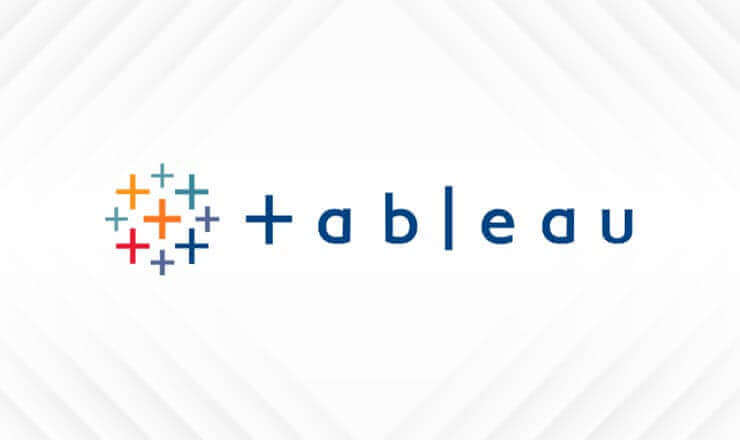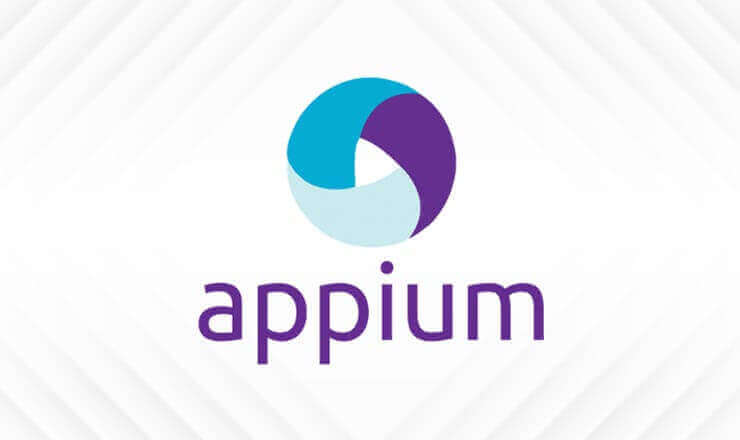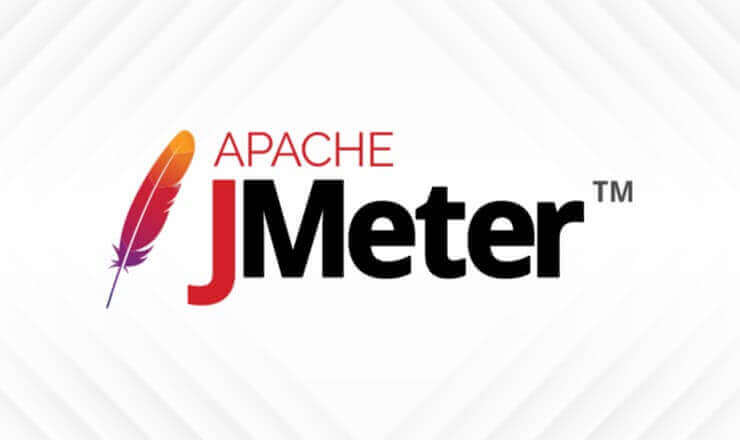Full Stack Automation Tester
Automatic Testing, vital for maintaining software quality, is becoming prominent with developments in AI and mobile applications. TechPro Education's course prepares you for this growing field, helping you to develop Full Stack Test Automation Tester skills.
Summary
Automation testing is a set of tools and methods aimed at checking the correct operation of a computer program before actual use. It is used to perform tasks that are repeated often or difficult to do by hand. Automation testing tools check the programme, tell you what happened and compare the results with previous tests.
With the rapid growth and increasingly complex nature of the software world, the importance of automated testing is rising. In addition, the fact that desktop and mobile applications strongly influence our daily lives and the fact that applications are tolerant of a minor degree of error increases the demand for this field.
According to a study by Grand View Research, the test automation market is expected to grow at an annual rate of 15 per cent by 2025. This means that businesses in the field will invest more in test automation. In addition, given that the mobile and web application market is constantly expanding, the need for testing here is also expected to significantly increase the demand for Test Automation Engineers worldwide.
Besides, advancing artificial intelligence and machine learning technologies in recent years have added new dimensions to test automation and increased interest in the field. Therefore, being a Full-Stack Test Automation Engineer means playing an important and valuable role in the software industry. In light of this, TechPro Education's Test Automation Engineer course aims to train qualified experts in this field in response to market demand.
In conclusion, being a Full-Stack Test Automation Engineer means playing an important and valuable role in the software industry. This role is critical in ensuring quality at every level of software and reducing software errors. The increasing demand in this field and technological developments show that Test Automation Engineering will continue to play an essential role in the future.
Job Title Targets
- - Test Automation Engineer
- - QA (Quality Assurance) Engineer
- - Automation Test Lead
- - Functional Tester
- - Mobile Test Automation Engineer
- - Software Developer Engineer in Test (SDET)
- - QA Analyst
- - Selenium Automation Analyst
Become Full Stack Automation Engineer in 24 Weeks
- 1. Learn from Software Experts
- 2. Live Java and Selenium Projects
- 3. Test Real Life Websites/Software
- 4. Track the bugs with Jira
Automation Testing Process
- 1. Test Tool Selection
- 2. Define the Range of Automation
- 3. Planning, Design and Development
- 4. Text Delivery
- 5. Maintenance
Why is Automation Testing needed?
- 1. Manual Testing of all work schedules, all fields, and all negative scenarios is time and money consuming.
- 2. It is difficult to test sites which have different language versions by hand.
- 3. Automatic testing does not need humans to be involved. You can run automated tests unattended (overnight).
- 4. Automation increases the speed of test delivery.
- 5. Automation helps to make sure that all necessary elements are tested.
- 6. Manual Testing can become boring and is therefore likely to lead to errors.
Course Content
At TechPro Education, we prepare you for a brilliant career with our rich course content that covers everything that is needed to work as a qualified Test Automation Engineer in the software industry.
Information Technology Fundamentals (ITF)
IT Fundamentals refer to basic knowledge of the key concepts in information technology (IT) and their understanding. It provides a base for individuals in different areas of information technology and provides the basis for further training and specialist preparation.
Java
Java is a language that has always been in the top 3 of the most used programming languages for many years. Due to its Object Oriented Programming feature, it allows you to use your code again and again, and can run on different computers. Also, the wide range of Java tools helps you test your code quickly and find bugs. If you learn Java, you can do better tests and perform better as a software tester.
Lambda
In Java, a lambda expression is a short way to show a function that doesn’t have a name and can be used as a value. This was added in Java 8 to make functional programming better.
SDLC
SDLC (Software Development Life Cycle) is the process developers follow to create and maintain software. Test Automation is the process of automating manual tests. In SDLC, Test Automation is typically used in the testing phase to check that software is functioning well. It saves time and effort by running tests and repeating them automatically.
Manual Testing
Manual testing is a basic software testing method where a tester applies test cases by hand, without the help of automated tools. Its primary goal is to discover bugs, issues, and faults in the application software. As the earliest form of testing, manual testing remains crucial in identifying critical issues in software.
Git-Github
Git and GitHub are increasingly popular tools that play an essential role in software development processes. Git is known as a distributed version control system, while GitHub is a Git-based code hosting platform where professionals can work together.
After Git and Github training, you will be able to use these tools easily in your business life. GitHub offers several features that help developers manage their projects more effectively. For example, it provides tools for project management, such as monitoring issues, monitoring bugs, and wiki pages. It also helps professionals to work together with features such as a pull request mechanism where different developers can suggest changes and contribute to a project.
Using Git and GitHub makes software development processes more efficient and organised. It enables several developers to work on the same project, helps with rollbacks, and enables rapid bug fixing. It also increases community engagement and makes code sharing simpler in open-source projects.
Resumé - LinkedIn
A resumé is a short description of personal, educational, and professional qualifications and experience used for job applications.
LinkedIn is the world's largest professional business network on the Internet. You can use LinkedIn to find the right job or position as an intern, build and strengthen professional relationships, and learn the skills you need to succeed in your career.
TechPro Education offers you career support to create the proper resume and build an effective LinkedIn profile until you find a job.
SQL
Structured Query Language (SQL) is used to communicate with a database. According to ANSI (American National Standards Institute), it is accepted as the standard language for relation-based database management systems.
SQL is used for tasks such as data control, querying, data definition, and database management through database management systems. Its popularity and use have played a significant role in developing database technologies.
Advanced SQL
Advanced SQL refers to more complex and powerful features and techniques beyond the basic elements of SQL. It includes advanced query making, data manipulation, and improvment techniques that allow for more sophisticated and efficient database operations.
JDBC
JDBC (Java DataBase Connectivity) is an application programming link that allows applications written in Java to interact with the database. With JDBC, we can connect to databases such as MySQL, Oracle, and MS SQL Server and easily handle our operations, such as extracting, updating, deleting, and adding data from these databases.
HTML - CSS
HTML sets the structure and content, while CSS decides on the style and visual organization of a web page. You will learn structures and the necessary features of both languages in our course.
Selenium
Selenium is a test automation tool used for testing web applications. It enables the automation of test scenarios performed on web browsers. A large user community widely adopts it because it is compatible with several programming languages and support for different web browsers.
In the early 2000s, Mercury Interactive dominated the world of test automation with its test tool, Astra Quick Test. Despite its wide adoption, this test tool was not particularly successful. It only supported testing on the Windows platform, had limited browser support, and could only be used with the VBScript programming language.
In 2004, Jason Huggins came up with a revolutionary idea. He developed a tool in response to the limits of Astra Quick Test, and Mercury Interactive's increasing popularity despite those limits. He named it Selenium, after the element used in the treatment of Mercury Poisoning. The birth of the Selenium Test Library occurred in this way.
API
Application Programming Interface is a protocol that connects two software elements and a server. APIs are devices that allow two software elements to communicate with each other through specific definitions and protocols. In the context of APIs, “application” refers to any software with a separate function. An interface is a service contract between two applications. This contract defines how the two will communicate using requests and responses.
API architecture is usually described in terms of clients and servers. The application that sends the request is called the client, and the application that sends the response is called the server. So in an example based on the weather, the government’s weather database is a server, while the mobile app is a client.
AWS ( Amazon Web Services ) ( Recording )
AWS is a cloud service offered by Amazon that allows users to rent computer power, storage space, and other technical assistance over the Internet.
AWS includes many services, such as hosting websites, database services, artificial intelligence and machine learning applications.
These services allow users to perform technical operations at lower costs and with greater flexibility without using complex systems and software that users must install and manage on their computers or servers.
Docker ( Recording )
Docker is a platform that puts software in a "container" and makes it run the same way on different computers and servers. These containers hold all of the software's parts (code, system tools, libraries, settings, etc.) so that the software always works as expected and there are no problems like “it was running badly on my computer.”
Jmeter ( Recording )
Apache JMeter is a tool that tests and measures the performance of websites and services in Java code. It monitors these results and creates graphs to represent them in a visual way.
Jenkins ( Recording )
Jenkins is a Continuous Integration (CI) tool that makes the structural processes in a software project automatic in a dynamic way. This allows for quick and easy reporting, testing, and fixing within the project.
Jira / Xray
JIRA is a software development tool engineers use to monitor and manage tasks. Xray is the leading Quality Assurance and Test Management app for Jira.
Appium ( Recording )
This course teaches you about Appium, an open-source testing tool on several platforms. Appium allows test cases for native, hybrid, and web apps, including Android and iOS, to be run automatically.
During the course, you'll learn how to set up and use the Appium server to make testing on mobile devices easier. You will learn the basic elements of Android automation testing using Appium and get hands-on experience writing and running automated test scripts for mobile apps.
Key topics covered include:
- - Understanding the basic ideas and structure of Appium;
- - Using the power of UIAutomator2 to interact with Android apps;
- - Using Appium Inspector to examine and analyse the user interface elements of mobile apps;
- - Step-by-step instructions for installing and setting up Appium on your machine;
- - Integrating Appium with Java for smooth automation; and more.
- - Appium 2.0's newest features and improvements will be looked at.
- - Using Appium and Selenium to improve web and mobile testing will also be covered.
By the end of this course, you'll know a lot about mobile testing with Appium and be able to automate test cases and make sure your Android apps are good.
Selenium Grid ( Recording )
Selenium Grid is a part of Selenium Suite, designed to run several tests simultaneously on different browsers, machines, and operating systems.
Cypress ( Recording )
Cypress is a testing system designed for web applications, making it simpler for developers to script test cases, to make tasks automatic, and to run tests without the need for a separate browser. Equipped with a range of tools, it makes the testing process simpler and faster. As an effective and user-friendly solution, Cypress significantly improves the quality of existing web applications. Recognizing this, TechPro Education has improved its course content by including Cypress training together with Selenium. This improvement promises to provide you with all the necessary skills for a successful career in Test Automation.
Microservices ( Recording )
The microservice architecture breaks down software into many small pieces. These pieces are independent services that can communicate and work together. This allows a team to develop and use their service independently from others. It means there are fewer dependent elements in the code, which enables developers to develop their services without being limited by users. Additionally, it hides extra complex elements from users.
Internship project
In the internship project, you can use Java, Selenium, GitHub, Jira, SQL, Jenkins, HTML, SDLC, and other applications that you have learnt about during the course in real projects.
Timetable
Turkish Course Day Time Timetable
|
Day |
EST |
CET |
TSI |
|
Monday |
04:00 am - 06:50 am |
10:00 - 12:50 |
11:00 - 13:50 |
|
Tuesday |
04:00 am - 06:50 am |
10:00 - 12:50 |
11:00 - 13:50 |
|
Wednesday |
04:00 am - 06:50 am |
10:00 - 12:50 |
11:00 - 13:50 |
|
Thursday |
04:00 am - 06:50 am |
10:00 - 12:50 |
11:00 - 13:50 |
|
Friday |
11:30 am - 04:20 pm |
17:30 - 22:20 |
18:30 - 23:20 |
|
Saturday |
11:30 am - 04:20 pm |
17:30 - 22:20 |
18:30 - 23:20 |
|
Sunday |
- |
- |
- |
- EST : Eastern Standard Time
- CET : Central European Time
- TSI : Turkish Time
Turkish Course Night Time Timetable
|
Day |
EST |
CET |
TSI |
|
Monday |
01:30 pm - 04:20 pm |
19:30 - 22:20 |
20:30 - 23:20 |
|
Tuesday |
01:30 pm - 04:20 pm |
19:30 - 22:20 |
20:30 - 23:20 |
|
Wednesday |
01:30 pm - 04:20 pm |
19:30 - 22:20 |
20:30 - 23:20 |
|
Thursday |
01:30 pm - 04:20 pm |
19:30 - 22:20 |
20:30 - 23:20 |
|
Friday |
11:30 am - 04:20 pm |
17:30 - 22:20 |
18:30 - 23:20 |
|
Saturday |
11:30 am - 04:20 pm |
17:30 - 22:20 |
18:30 - 23:20 |
|
Sunday |
- |
- |
- |
- EST : Eastern Standard Time
- CET : Central European Time
- TSI : Turkish Time
English Course Day Time Timetable
|
Day |
EST |
CET |
TSI |
|
Monday |
- |
- |
- |
|
Tuesday |
10:00 am.- 12:50 pm |
16:00 - 18:20 |
17:00 - 19:50 |
|
Wednesday |
10:00 am.- 12:50 pm |
16:00 - 18:20 |
17:00 - 19:50 |
|
Thursday |
10:00 am.- 12:50 pm |
16:00 - 18:20 |
17:00 - 19:50 |
|
Friday |
10:00 am.- 12:50 pm |
16:00 - 18:20 |
17:00 - 19:50 |
|
Saturday |
10:00 am - 02:20 pm |
14:00 - 20:20 |
17:00 - 21:20 |
|
Sunday |
10:00 am - 02:20 pm |
14:00 - 20:20 |
17:00 - 21:20 |
- EST : Eastern Standard Time
- CET : Central European Time
- TSI : Turkish Time
English Course Night Time Timetable
|
Day |
EST |
CET |
TSI |
|
Monday |
07:00 pm - 09:50 pm |
01:00 - 03:50 |
02:00 - 04:50 |
|
Tuesday |
07:00 pm - 09:50 pm |
01:00 - 03:50 |
02:00 - 04:50 |
|
Wednesday |
07:00 pm - 09:50 pm |
01:00 - 03:50 |
02:00 - 04:50 |
|
Thursday |
07:00 pm - 09:50 pm |
01:00 - 03:50 |
02:00 - 04:50 |
|
Friday |
- |
- |
- |
|
Saturday |
10:00 am - 02:20 pm |
16:00 - 19:20 |
17:00 - 21:20 |
|
Sunday |
10:00 am - 02:20 pm |
16:00 - 19:20 |
17:00 - 21:20 |
- EST : Eastern Standard Time
- CET : Central European Time
- TSI : Turkish Time
Note: Please note that schedules may change due to daylight saving time in summer and winter.
FAQ
Why Test Automation is needed?
Here are the reasons why test automation is needed:
- - All work schedules, all areas, and manual testing of all negative scenarios take time and money,
- - It is hard to test websites that are in different language versions,
- - Automatic tests do not need human particpation. You can run the test unattended (overnight),
- - Automatic tests increase the speed of test delivery,
- - Automatic tests help to make sure all required elements are tested,
- - Manual Testing can become boring and, therefore, likely to result in errors.
What is a Full Stack Automation Engineer?
A Full Stack Automation Engineer is a software engineer who tests a web application's front-end and back-end parts. They write codes to test a website or application's UI, back-end (database & API), and other elements.
Why should I choose TechPro Education?
- 1. The difference of our programs from others
- - HTML + CSS
- - Cypress, in addition to Selenium
- - Appium & Mobile Testing
- - UML Diagram for Java Projects
- - Advance Java with Functional Expression Lambda
- - Small Study Groups (SSG)
- 2. Group study and mentoring sessions,
- 3. Friends from different continents, countries and networks,
- 4. Technical Support,
- 5. Sharing real experiences from our graduates working in the market,
- 6. Quality Education Staff,
- 7. Chance to pass Java Developer or DevOps within the first 30 days,
- 8. Full fee refund for the first 15 days of the course in English education and the right to recover the full fee within the first 15 days of Turkish education.
- 9. Two months working as an intern on two different real-life projects
How much time does your program take each week?
24 hours with mentoring and Small Study Groups (SSG) a week
How much does a Test Automation Engineer earn on average?
The Average Salary of a Test Automation Engineer is $91k a year in the USA.

























